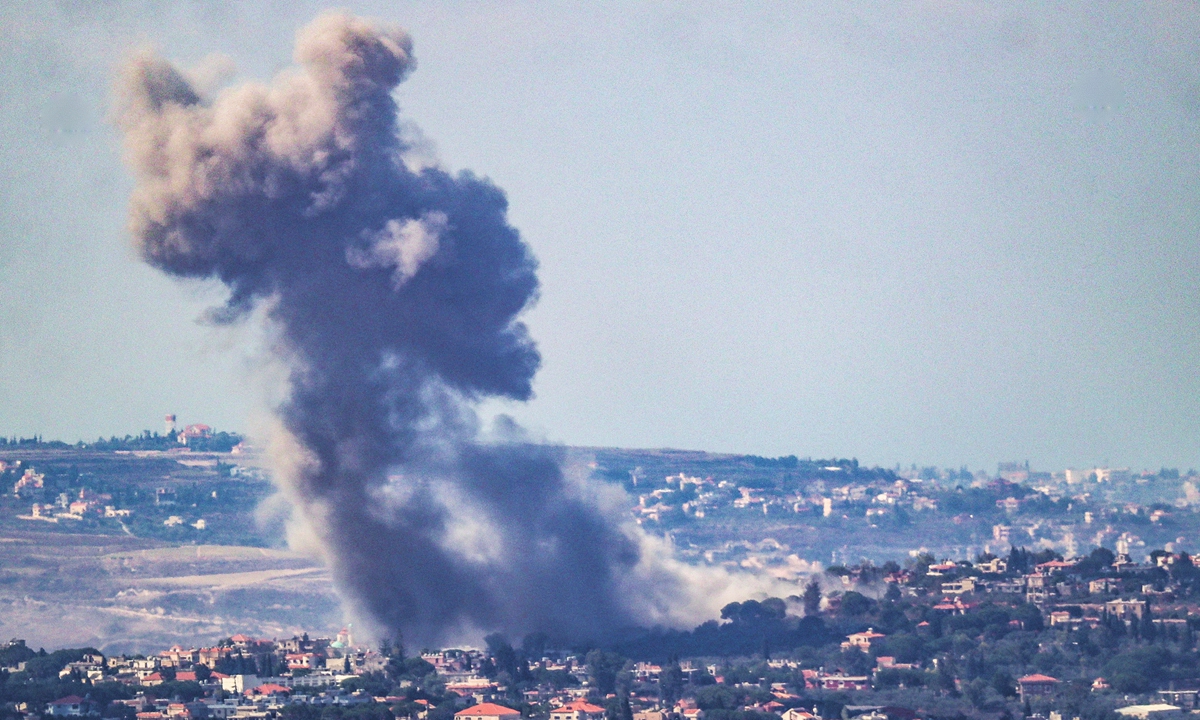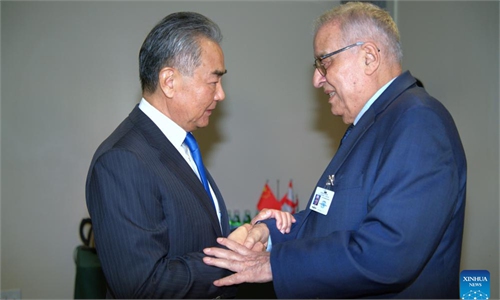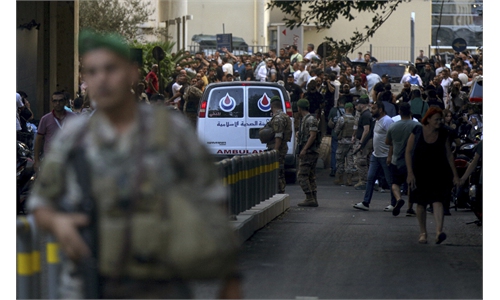Intl community concerned about escalation after Hezbollah leader killed in Israel’s airstrike; US indulgence departs from global consensus: experts

Smoke rises from the site of an Israeli airstrike that targeted the southern Lebanese border village of Zawtar on September 29, 2024. Israel said on September 29 that it was carrying out new air raids against "dozens" of Hezbollah targets in Lebanon, after killing the group's leader, Hassan Nasrallah. Photo: AFP
In response to the Israeli strike that killed Hezbollah leader Hassan Nasrallah, China on Sunday urged all parties concerned, especially Israel, to immediately take actions to cool down the situation and prevent the conflict from escalating or even spiraling out of control. Many regional countries and members of the international community also expressed similar concerns and criticism toward the Israeli strike in Lebanon.The Chinese Foreign Ministry released a statement on Sunday that said China opposes the infringement on Lebanon's sovereignty and security, opposes and condemns any action against innocent civilians, and opposes any move that fuels antagonism and escalates regional tensions.
Apart from China, members of the international community, including Russia, Saudi Arabia, Iran, Turkey, Egypt, Iraq, Indonesia as well as the UN Secretary-General, also expressed concern over the further escalation of the regional crisis or directly criticized Israel's strikes in Lebanon. Chinese experts said on Sunday that this reflects the global consensus to stop conflict in the region and shared concern over the worsening situation, and that the indulgence of the US, which exacerbates the crisis, is at odds with the mainstream sentiments of the international community.
The tension between Lebanon and Israel is a spillover of the Gaza conflict. The pressing priority is to implement relevant UN Security Council resolutions, end the fighting in Gaza as soon as possible, and earnestly safeguard peace and stability in the Middle East, Chinese Foreign Ministry's spokesperson said.
Iran on Saturday called for the United Nations Security Council to meet over Israel's actions in Lebanon and across the region, Iran's UN ambassador, Amir Saeid Iravani, wrote in a letter to Security Council, Reuters reported. Iran's supreme leader has said the death of Nasrallah "will not go unavenged," BBC reported.
Hamas said on Saturday it mourned Nasrallah following his death in the Israeli airstrike, saying his death would only fuel the fight against Israel. Palestinian President Mahmoud Abbas condemned the "brutal Israeli aggression," while the Palestinian Fatah movement offered condolences and emphasized "the historical relationship between the Lebanese people and their resistance and Palestine."
UN Secretary-General António Guterres expressed grave concern on Saturday over the dramatic escalation of events in Lebanon's capital Beirut. According to a statement issued by the spokesperson for Guterres, the secretary-general urges the parties to recommit to the full implementation of Security Council resolution 1701 (2006) and immediately return to a cessation of hostilities. He also reiterated his call for an immediate ceasefire in Gaza and the release of all hostages held there.
The responses from various parties underscore the international community's common stance in condemning the misuse of force and expressing deep concern over the cross-border strikes in Lebanon and the resulting humanitarian crisis, Sun Degang, director of the Center for Middle Eastern Studies at Fudan University, told the Global Times on Sunday.
Opposite to many other countries' leaders, US President Joe Biden said on Saturday that the Israeli strike that killed Hezbollah's Hassan Nasrallah was a "measure of justice," according to VOA.
This once again shows that it is precisely the US' indulgence that has led to the ongoing escalation of the situation in the Middle East today, analysts said. The US plays a key role that allows, tolerates, or even instigates the escalation of this crisis, experts noted. Sun said that it is the US' unreasonable and selfish indulgence that has enabled the extension of the crisis, which will diverge itself and Israel from the mainstream of the international community.



